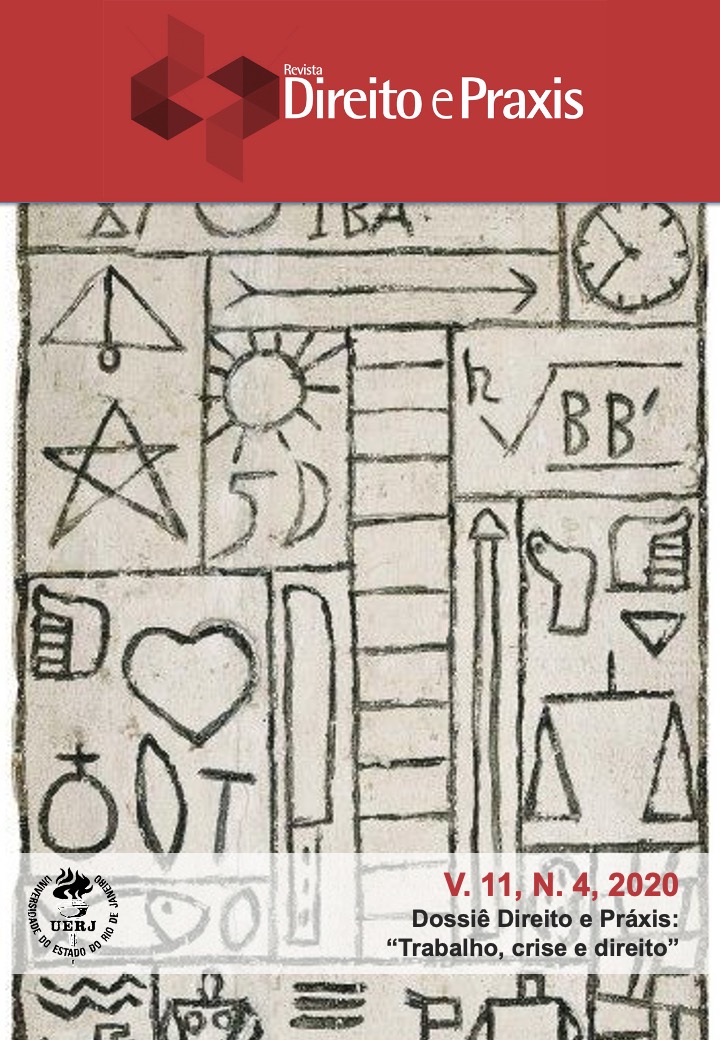As políticas migratórias brasileiras do século XIX ao século XXI: uma leitura biopolítica do movimento pendular entre democracia e autoritarismo / Brazilian migratory policies from the 19th to 21st centuries: a biopolitic reading of pendular movement between democracy and authoritarism
Palavras-chave:
Biopolítica, Políticas migratórias, Autoritarismo, Democracia, Direitos humanos / Biopolitics, Migration policies, Authoritarianism, Democracy, Human Rights.Resumo
DOI: 10.1590/2179-8966/2020/45137
Resumo
O artigo tematiza o movimento pendular entre democracia e autoritarismo que permeia historicamente as políticas migratórias brasileiras. Analisa os projetos imigrantistas do século XIX –cujo escopo era o “branqueamento” da população nacional –, passando pelas políticas restritivas adotadas na primeira metade do século XX e que culminaram, na década de 1980, na edição do Estatuto do Estrangeiro (Lei nº 6.815/1980), marcado pela construção da imagem do imigrante como “sujeito de risco” à soberania e à segurança nacional, bem como por uma nítida separação entre os imigrantes considerados “úteis” e “inúteis” de acordo com as exigências do mercado de trabalho. Avalia em que medida essas características autoritárias ainda se fazempresente na contemporaneidade, após a edição da nova Lei de Migração (Lei nº 13.445/2017), a qual, mesmoapresentandouma ruptura paradigmática orientada àpromoção dos Direitos Humanos dos migrantes,ainda encontra óbice à sua efetivação, particularmente em face do seupróprio Decreto regulamentador (Decreto nº 9.199/2017), marcado por inúmeros retrocessos, evidenciando uma retomada da perspectiva autoritária na gestão daimigração com destino ao Brasil, a qual ganha novo impulso com orompimento do paíscom o “Pacto Global Para Migração Segura, Ordenada e Regular”da Organização das Nações Unidas.O marco teórico que orienta a construção do artigo é a biopolítica de matriz foucaultiana e agambeniana. O método de pesquisa empregado na investigação é o fenomenológico-hermenêutico.
Palavras-chave: Biopolítica; Políticas migratórias; Autoritarismo; Democracia; Direitos humanos.
Abstract
The article deals with the pendular movement between democracy and authoritarianism that historically permeates Brazilian migration policies.It analyzes the nineteenth-century immigrant projects -whose scope was the “laundering” of the national population -and the restrictive policies adopted in the first half of the twentieth century and which culminated in the 1980s in the issue of the Foreigner's Statute (Law No. 6.815/1980), marked by the construction of the immigrant's image as a “subject of risk” to sovereignty and national security, as well as by a clear separation between immigrants considered “useful” and “useless” according to the demands of the labor market. It assesses the extent to which these authoritarian characteristics are still present in contemporary times, after the issuance of the new Migration Law (Law No. 13.445/2017), which, even presenting a paradigmatic break orientedto the promotion of migrants' Human Rights, still finds an obstacle. particularly in view of its own Regulatory Decree (Decree No. 9.199/2017), marked by numerous setbacks, evidencing a resumption of the authoritarian perspective in the management of immigration to Brazil, which gains new impetus with the rupture of the country. with the United Nations “Global Compact on Safe, Ordered and Regular Migration”. The theoretical framework that guides the construction of the article is the Foucaultian and Agambenian biopolitics. The research method employed in the investigation is the phenomenological-hermeneutic.
Keywords: Biopolitics; Migration policies; Authoritarianism; Democracy; Human Rights
Downloads
Downloads
Publicado
Como Citar
Edição
Seção
Licença
Os textos são de exclusiva responsabilidade de seus autores.
É permitida a reprodução total ou parcial dos artigos da Revista Direito e Práxis, desde que citada a fonte.
Este trabalho está licenciado sob uma Licença Creative Commons 4.0, Atribuição-Sem Derivações.
Esta licença permite copiar e redistribuir o material em qualquer suporte ou format para qualquer fim, mesmo que comercial, desde de que citada a autoria original.
This work is licensed under a Creative Commons Attribution 4.0 International License.




